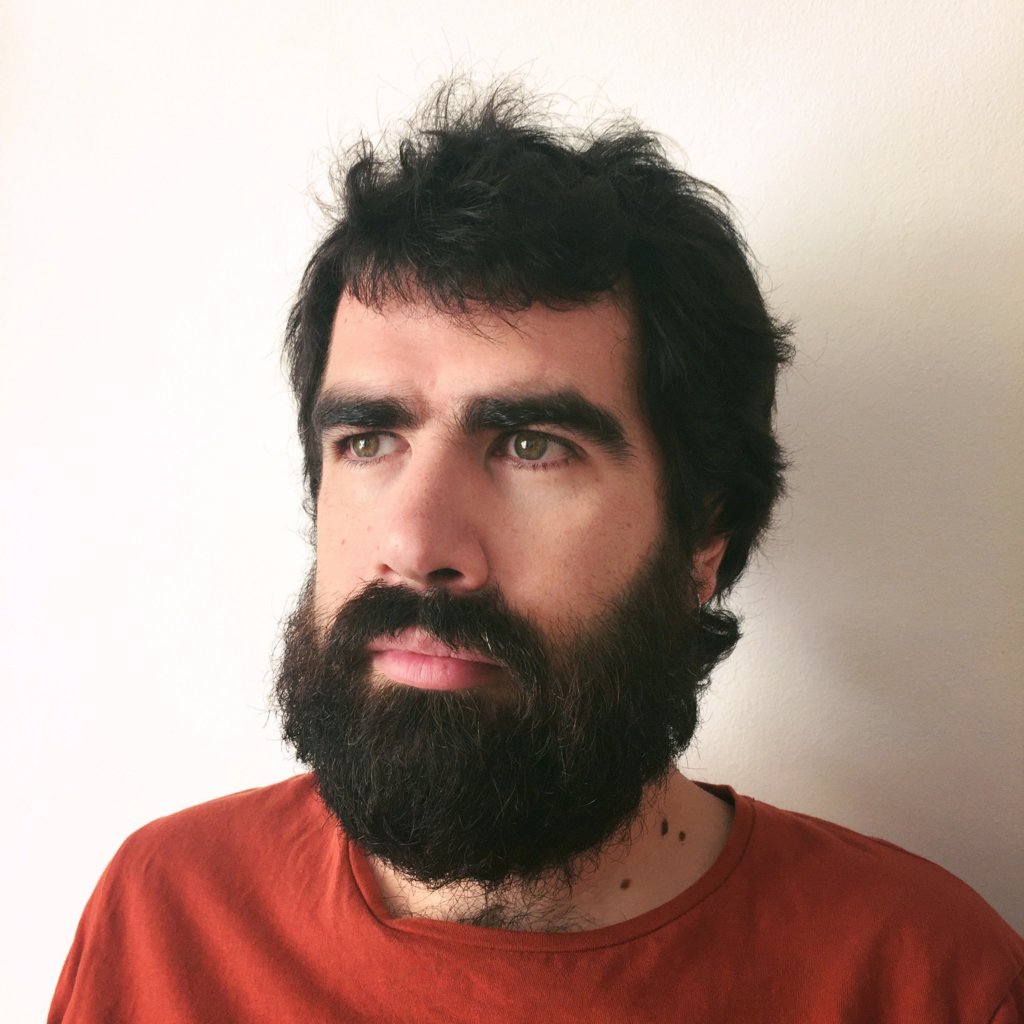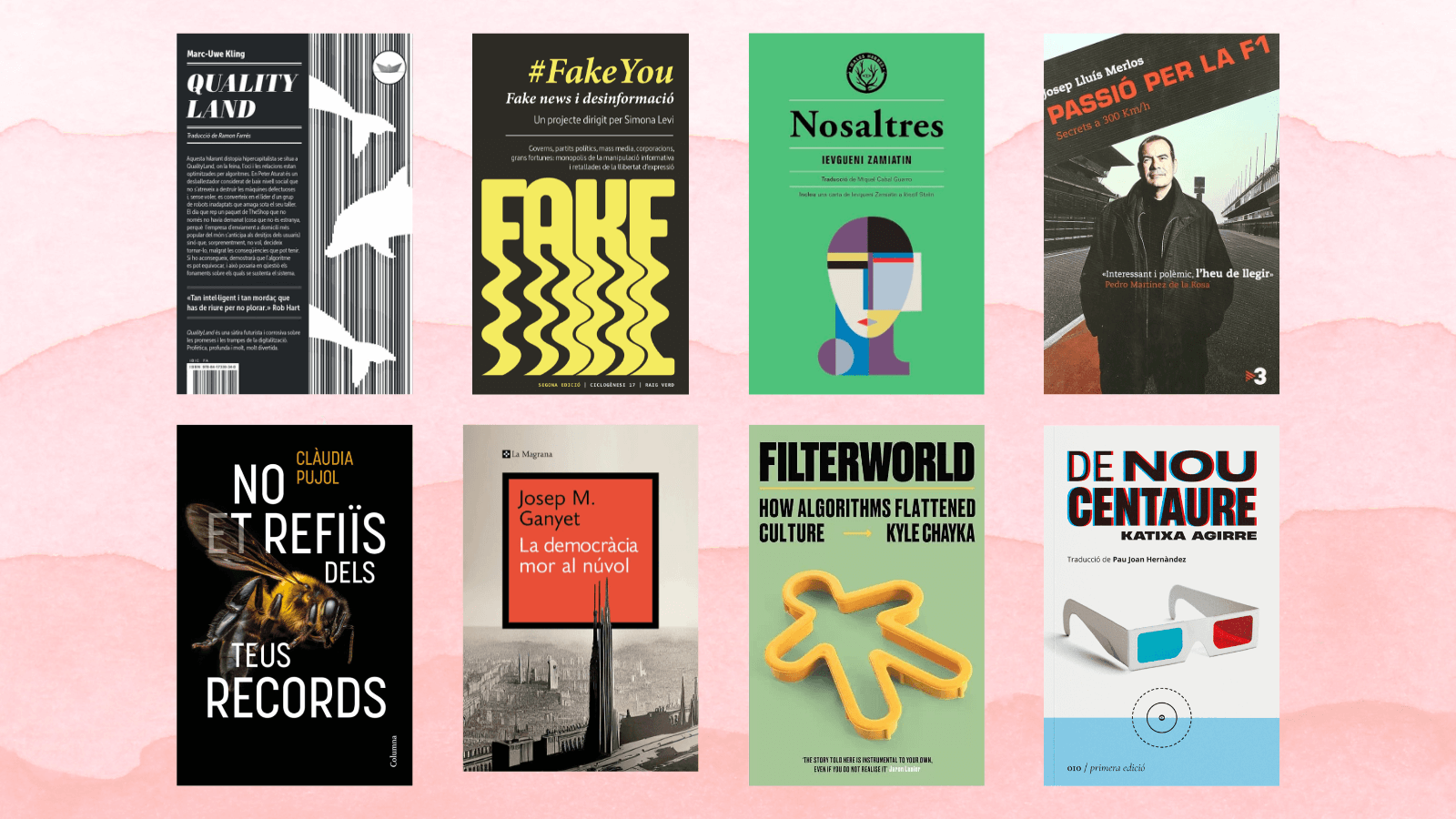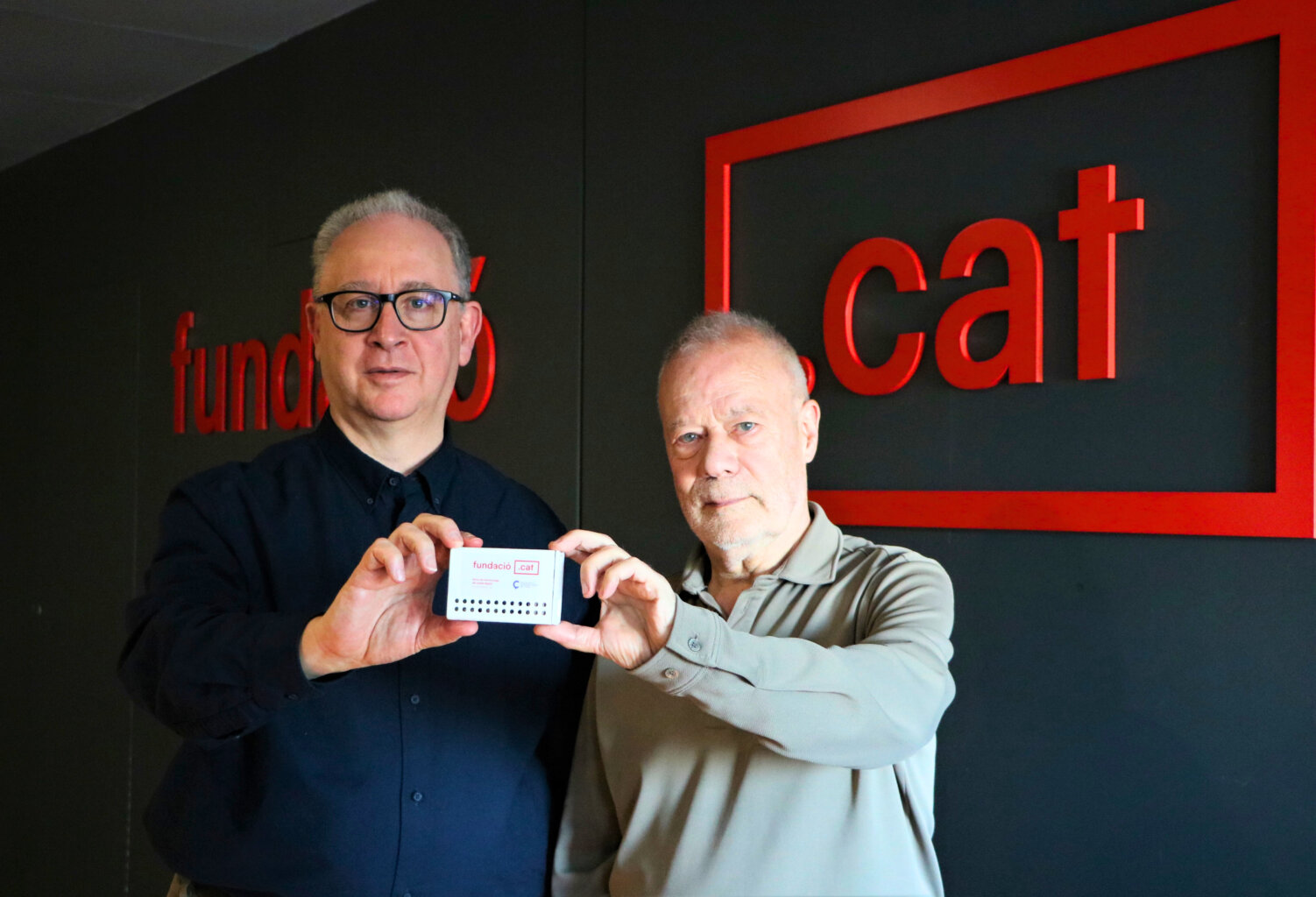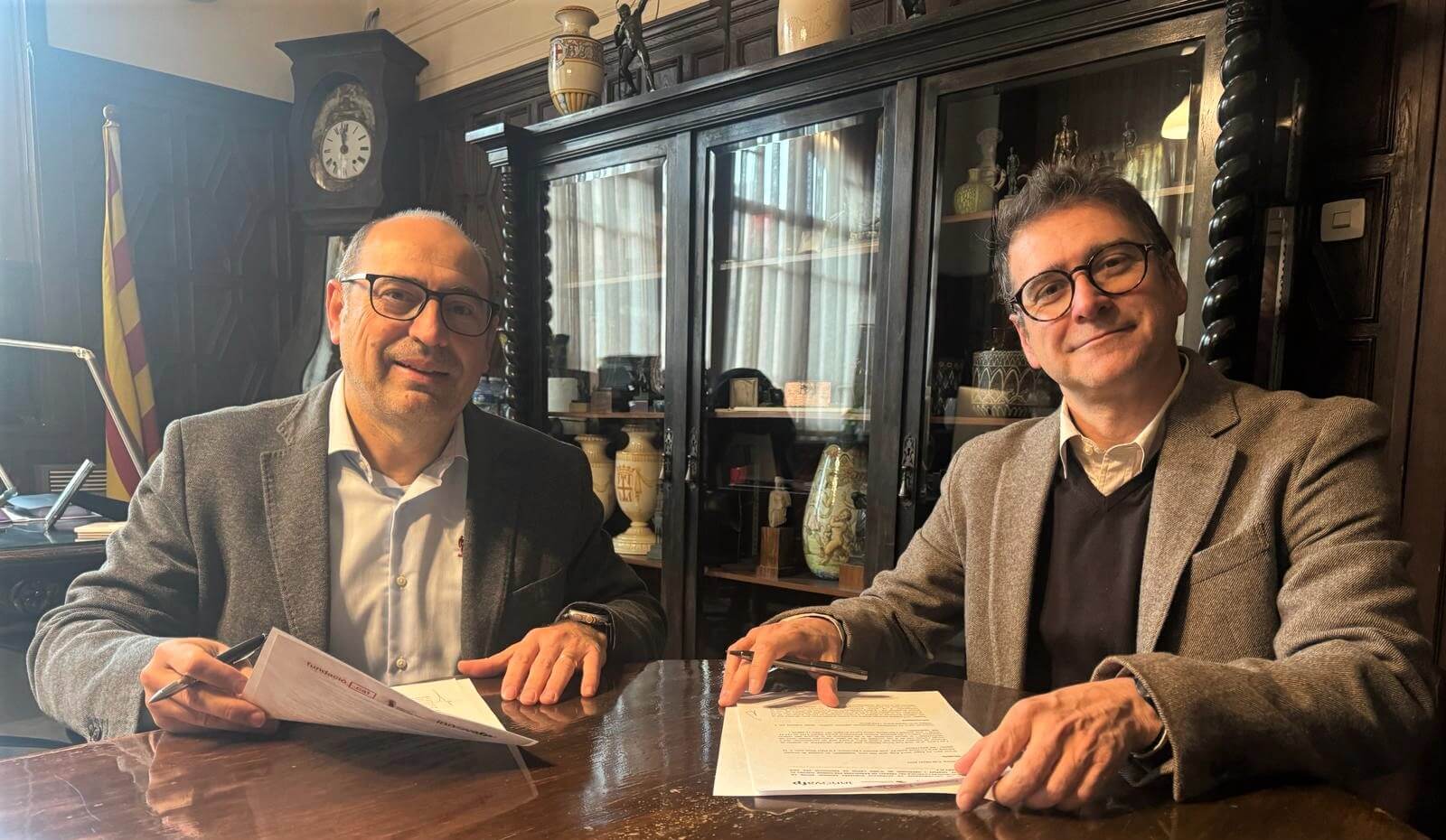Àlex Hinojo: ‘We act as a bridge between the on-line community and the institutions so that the knowledge they generate is in Catalan and free’

Processed with MOLDIV
We talk to Àlex Hinojo, a partner of Amical Wikimedia.
Tell us a bit about yourself.
I’m a cultural manager, and I have training in business studies, museum management, and cultural management in general. I’m currently working as the head of communications and digital coordinator for Institut Ramon Llull, an institution that promotes the Catalan language and culture internationally that is supported by a consortium of the Government of the Balearic Islands, the Generalitat de Catalunya, and Barcelona City Council.
How did you get involved in Wikipedia?
I started editing Wikipedia in 2007. I came across Wikipedia, I started getting involved, and gradually became a fan. When I got involved with Wikipedia, it had around 40,000 or 50,000 articles. We had a real job on our hands, and it was when the world meetings of wikipedians took off. It was at this time that I ended up becoming an ambassador of Wikipedia , a honorific title. Because Wikipedia doesn’t have a face, this is the name given to the person who can give interviews and the like.
Shortly afterwards you set up Amical Wikimedia, didn’t you? Could you explain it to us?
Yes. It’s an association that promotes Wikipedia in Catalan and free knowledge in Catalan. I was the director for a few years and then from 2012 to 2018 I was the only freelance [person in a group who is paid a wage to work exclusively on certain things]. From there on, we have promoted coordination projects with museums, libraries and universities…. We basically acted as a bridge between the on-line community and the authorities and other institutions, trying to ensure the knowledge they generate was in Catalan and free.
Not only in Catalonia?
With the spotlight more on Catalonia than the Balearic Islands and the region of Valencia, but in the entire linguistic region.
But Wikipedia in Catalan already existed when you got involved in the project.
It started on 16th March 2001 as one of the first non-English-language Wikipedias. You can find all the information on the Wikipedia page about the origins of the Catalan edition. Wikipedia was set up by Jimmy Wales and Larry Sanger, who initially wanted to produce a more traditional on-line encyclopaedia but the idea then arose to make it open-source and collaborative. This change in idea meant that the project really took off and was a great success. Because it was in open-source there was one user, Cdani from Andorra, who suggested making it multilingual. And the initiative was then replicated in other languages. One of the reasons why we have a multilingual project is because a Catalan speaker suggested it. Because there’s no country or someone behind it forbidding anything, then the Catalan version was able to progress.
So these pioneers who came before you were also involved in Amical Wikimedia.
Yes, Cdani was extremely involved in the initiative at the start. But volunteer-based associations are irregular, and they depend on the personal circumstances of their members. You might spend ten hours a day on it at the start, but you then have work, kids, and a private life, and you end up devoting twenty hours a month to it.
And how did the project evolve before you arrived?
The project grew very gradually between 2001 and 2005. The boom came about between 2006 and 2008. At the start, the corpus wasn’t large enough. 20,000 or 10,000 articles aren’t enough. When I started there were no articles on municipalities, painters, artists or music groups. We had our work cut out for us.
And how many of you work in Amical Wikimedia? And what about Wikipedia in Catalan in general?
There are currently between 120 and 150 members. That’s practically 50% of the most active people in Wikipedia. But the Catalan edition is edited by between 1,500 and 2,000 people a month, more or less. Of these, 90% make small contributions: one, two or three modifications a month. Then there are 100 or 200 people who make 30, 40 or 50 modification a month all told. And a hard core that does 90% of the work. This is an exceptional case if you compare it with other Wikipedian associations worldwide.
How do you organise yourselves in Amical when you’re there?
There are subject-based committees that promote subjects such as gender, and others involved in environmental issues or regional and governance matters. And these work groups fluctuate. All the strategic plan and the work plan is based are the needs of the community. If someone comes and says that they want to do a project on mushrooms then possible partners are sought, and it works quite well.
Explain how the partnership relationships work.
One example I could give, because it’s one of the things I promoted, are the agreements we signed with museums and libraries. Museums have biographies of everyone who has held conferences at them. And their websites are normally in Catalan, Spanish and English. You have everyone who has ever been there, although their texts are protected by copyright. Through an agreement, all the work paid for with public money becomes public domain and can be reused in Wikipedia. We reached an agreement with the CCCB to copy and upload the biographies of thousands of people who had passed through its doors, and you can also revise the things about the CCCB that have become obsolete. In this case, the partners also get the best of it. The idea is to make any information generated using public resources as accessible as possible.
Any other example?
We signed an agreement with the Generalitat for the project Wiki Loves Monuments. This project documented all the monuments that exist in the Catalan Region. Volunteers travel around the entire region to take photos, the pictures are uploaded into an open-source, public domain licence, creative commons, and while we’re doing this there are other volunteers updating the figures. Alongside this we also check the register, and when we find things that are incorrect in the register of the Generalitat we inform them so that they can validate and revise it. In the 50s, they sent Francesc Català-Roca to take photos of all Catalonia, and it’s now done collaboratively. The photos we take are used by the authorities for their official catalogues. This is the motivation behind partnerships: making the institutions realise that opening up contents to citizens makes them more valuable, because citizens use them and make them relevant, interacting with the largest corpus of knowledge that currently exists, which is Wikipedia.
Which includes universities…
Of course. From their database of professors, all the knowledge that universities generate, the papers they products… Looking at the papers that are in the public domain, promoting an open-source licence, ensuring universities publish more in open source, and including all this corpus generated in open source in Wikipedia, not only in Catalan but in other languages. A partnership is also a way of positioning the knowledge generated in Catalan-speaking regions worldwide.
We must ask you for your original communication policy: sending a humorous tweet on an entry from Wikipedia related to a relevant topic.
That was just by change (he laughs). We try to make sure they’re clean jokes. You can talk about endless things from a Wikipedia social media account. You can talk about science, sports…. You can talk about everything: you have half a million articles to go on. But how do you connect with a community when you’re unable to make any political comment or criticism? We look for related contents that can provide knowledge, and we mix them with a bit of humour. We’re promoting something as fun and as boring as an encyclopaedia: if I say on Twitter that Hegel died 250 years ago, that would be one boring tweet. But if you make a joke from time to time, you can then sneak in the tweet about Hegel.


